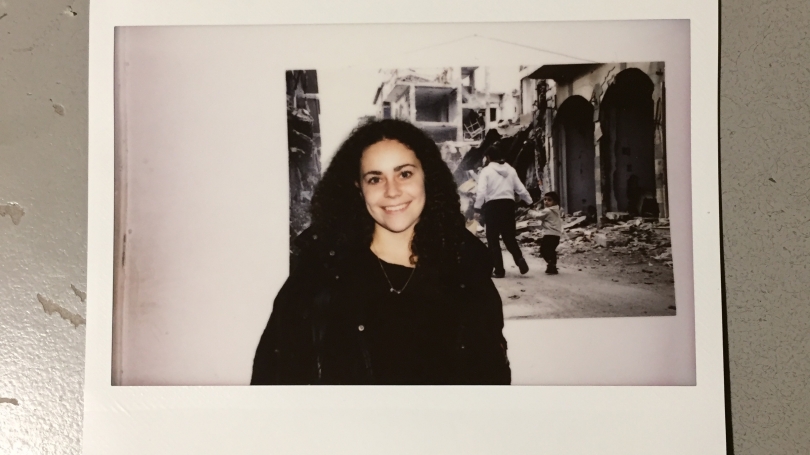
- About
- Programs
- Student Opportunities
- For Faculty
- News & Events
Back to Top Nav
Back to Top Nav
Back to Top Nav
Back to Top Nav
Back to Top Nav
by Justin Goggin ’18
Justine spent Winter 2017 at Amaka Art Therapy, a not-for-profit organization based in Athens, Greece, that organizes art therapy and intercultural education programs for marginalized youth.
As an actress and a singer who is passionate about human rights, I found my work at Amaka to be an inspiring exploration of the intersection of arts and human rights work. The women who work there are highly trained and passionate in their respective fields, all professional artists (directors, painters, sound designers, photographers) as well as university educated in psychology or psychotherapy.
I was placed on Amaka’s "Arts Emergency” program team, a series of workshops designed for refugee youth, primarily from Syria and Afghanistan, in Athens. I spent the weekends facilitating video, photography, stop-motion animation workshops with 16-24 year olds. Saturdays the workshops were for boys and on Sundays the workshops were for girls. The art therapists, who ran the workshops, worked according to the belief that the process of creation is inherently therapeutic.
As a representative for Amaka, I also designed and held a series of workshops for children at a refugee community center called Khora. Three days a week I ran the music and rhythm workshops. My advisor gave me advice and support, but she truly allowed me to do as I pleased with the project. I was very independent.
There were also many different opportunities and activities available through Amaka, Khora, and the connections I made through these organizations. For example, I attended rehearsals of a play acted by refugees from Afghanistan, Pakistan, and Bangladesh, who were sharing the narrative of their coming to Greece. My favorite “outside of the normal routine” activity was attending a project run by the female participants of the Arts Emergency workshops. They decided they wanted to express their gratitude to the Greek people for their kindness and acceptance of the refugees, so they created a set of paper flowers and bought a few bouquets of fresh flowers and attached beautiful cards to each flower that said “Shukran” and “Efharisto”—thank you in both Arabic and Greek. The girls handed them out at Syntagma Square, the main square of the city. It was a beautiful project.
The challenges that I was faced with were welcome challenges. They helped make the experience meaningful. Working with Greek art therapists and Afghani and Syrian refugees was challenging because there were always at least four different languages being spoken at a time. Though it was also really nice to be in an environment where people were so patient with one another.
The complete cultural immersion broadened my worldview both in small and large ways. Some of the small things were eating Greek and Syrian food, experiencing the Greek Dionysian festival with co-workers, and learning that Greeks greet people with two kisses and Syrians greet with three.
The thing that had the largest impact was working with and befriending contemporaries with refugee status. Processing the reality of the lives of the refugees I was working with was difficult. Saying goodbye was hard.
My time with Amaka and Khora impacted me deeply. It was incredible to be surrounded by passionate activists and artists. After leaving Amaka, I feel more passionate and certain of my belief in the arts as a vehicle for empowerment, especially for people who have been marginalized.
More information:
Khora Community Center
Amaka Art Therapy